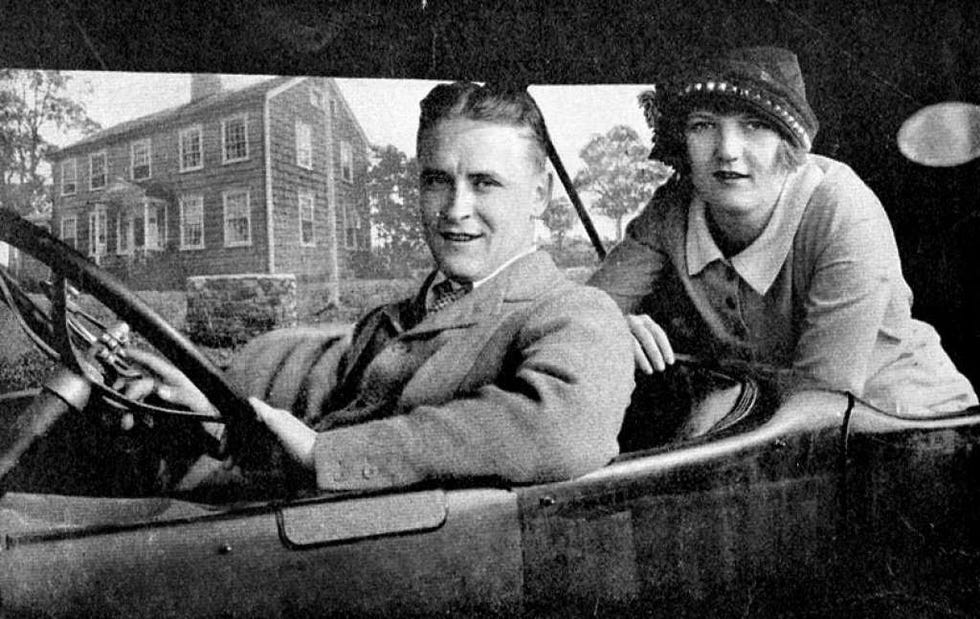From Town & Country, May 22:
A new study of F. Scott Fitzgerald's most famous novel makes the case that Jay Gatsby's home might not have been inspired by Long Island after all.
"Poppycock."
That's how Charles Scribner III, great-great-grandson of the man who established the eponymous publishing house that counted Fitzgerald, Hemingway, and Wolfe among its authors, responded to a Facebook post about the documentary Gatsby in Connecticut: The Untold Story, which explores the importance of Westport in F. Scott Fitzgerald and Zelda's writing and the possibility that—gasp—The Great Gatsby might not be solely based on the North Shore of Long Island.

F. Scott Fitzgerald Trustees, originally appeared in Motoring Magazine
...MUCH MOREOnce Scribner heard more about the filmmakers' evidence, however, he changed his mind."I’m convinced they are correct and that Gatsby is yet another example of a novelist's creative 'topographical transfusion' (in this case from Westport to West Egg)," Scribner told me.If filmmaker Robert Steven Williams and author Richard Webb, Jr., who is writing a book due out June 26 that will accompany the documentary, have won over skeptical Scribner, himself an academic, they're doing something right....
The automobile played a crucial role in both the zeitgeist and the novel.
Previously:
May 2013
"Fast cars and beautiful women at Nirvana: W. Gould Brokaw, the Real Jay Gatsby"
February 2012
Bootleggers, used car dealers and The Great Gatsby – on the trail of Max Gerlach

Wilson's Garage

The Great Gatsby the yellow roadster
Money was important as well:Infographic: The Cost of Being Gatsby
"The True Costs of the Gatsby Life" (or, F. Scott Fitzgerald joins the 1%)
Our Last F. Scott Fitzgerald/Great Gatsby Post: "Living on $500,000 a Year
Dear Max
The book comes out today and I am overcome with fears and forebodings. Supposing women didn’t like the book because it has no important woman in it, and critics didn’t like it because it dealt with the rich and and contained no peasants borrowed out of Tess in it and set to work in Idaho? Suppose it didn’t even wipe out my debt to you — why it’ll have to sell 20,000 copies even to do that!
The book comes out today and I am overcome with fears and forebodings. Supposing women didn’t like the book because it has no important woman in it, and critics didn’t like it because it dealt with the rich and and contained no peasants borrowed out of Tess in it and set to work in Idaho? Suppose it didn’t even wipe out my debt to you — why it’ll have to sell 20,000 copies even to do that!
—letter, Fitzgerald to his editor Maxwell Perkins, April 10,
1925